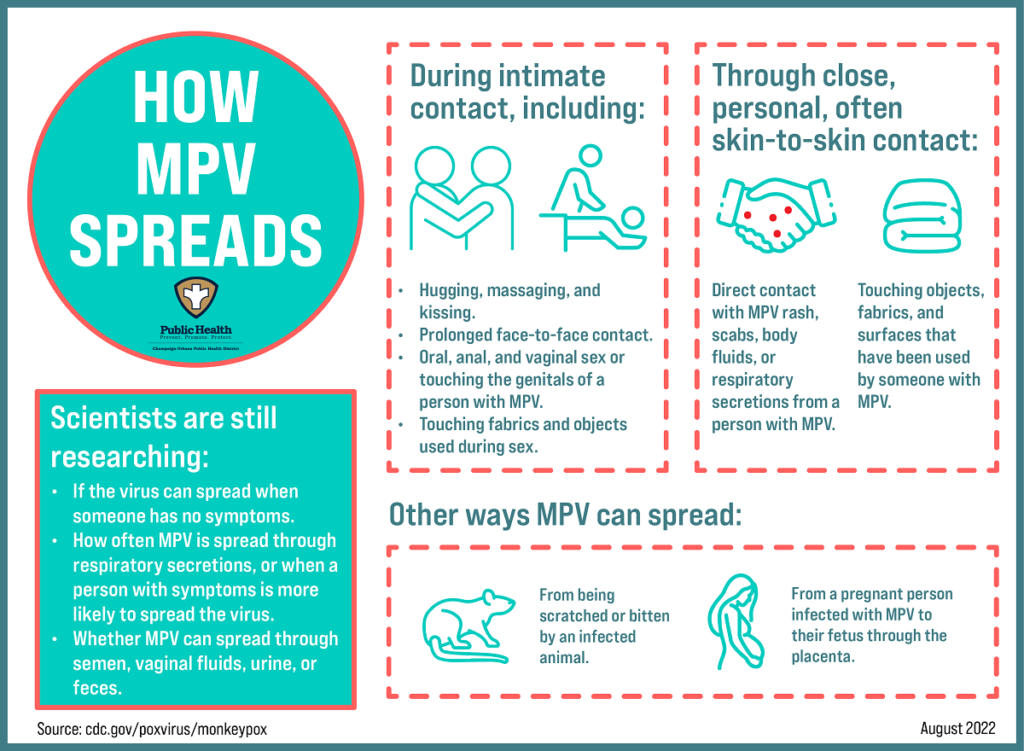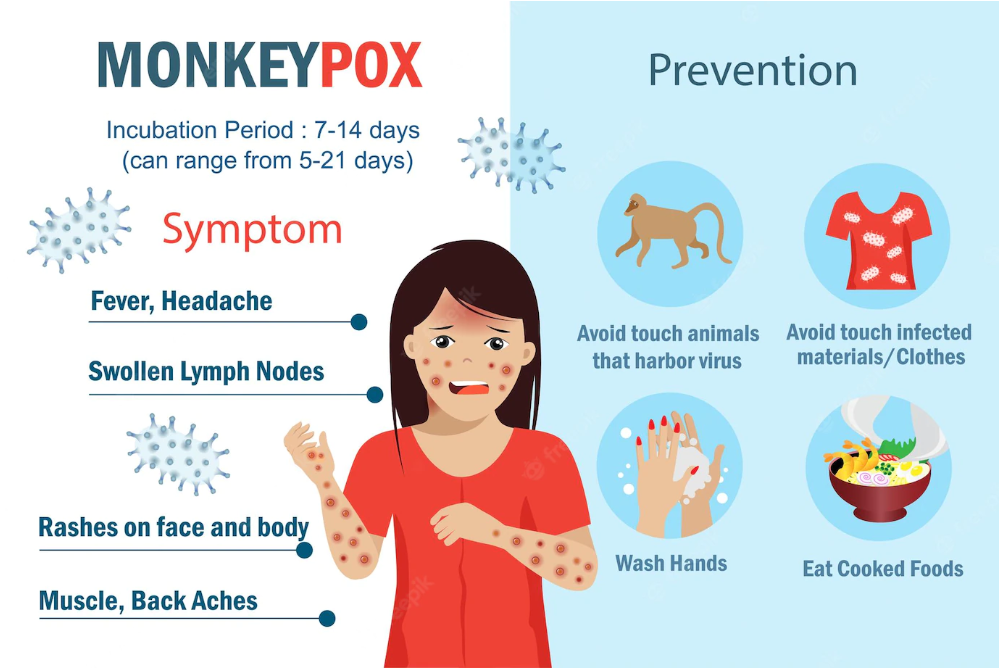The Ministry of Health has issued an announcement regarding Mpox (Monkeypox) following the recent detection of a case in the country.

Current situation
According to the European Centre for Disease Prevention and Control (ECDC) as of 16/08/2024, the risk assessment for the general population in Europe remains low.
In Cyprus, five confirmed cases were recorded in 2022. No cases were reported in 2023, while one confirmed case was identified on 15/12/2024.

Self-protection measures
- Avoid physical contact with individuals showing symptoms of possible Mpox infection.
- Wash hands frequently with soap and water or use sanitiser.
- Maintain personal protection measures and physical distancing.
- Vaccination for high-risk groups.
Possible symptoms
- Rash with blisters on the face, hands, feet, genitals, and/or anal areas.
- Fever.
- Swollen lymph nodes.
- Headache.
- Muscle aches.
- Fatigue/weakness.
Modes of transmission
From animals to humans (zoonotic):
- Direct contact with blood, bodily fluids, or skin/mucosal lesions of infected animals.
- Consumption of undercooked meat or other products from infected animals.
From humans to humans:
- Contact with respiratory secretions, skin lesions of infected individuals, or recently contaminated objects.
- Transmission through respiratory droplets during prolonged face-to-face contact.
- Transmission from mother to fetus via the placenta (which may lead to congenital Mpox).
- Close contact during childbirth and postnatal care.
- Close contact with household members, sexual partners, or other close contacts (e.g., handshakes or touching).
- Contact by carers, including healthcare professionals, who are not adequately protected.
Close contacts of mpox cases
- Sexual partners.
- Individuals living in the same household or similar environments (e.g., camps, shared sleeping spaces).
- Individuals sharing clothing, linens, or utensils while the case had a rash.
- Colleagues sharing the same workspace/office with the case for extended periods.
- Caregivers, healthcare professionals, and lab personnel in contact with an Mpox case or contaminated samples without appropriate protective equipment.
- Passengers seated within 1–2 seats of the case during symptomatic travel lasting ≥8 hours (e.g., plane, bus, train).
Case management
If someone experiences the above symptoms or is a close contact of a confirmed case, they should consult their personal doctor or another healthcare provider for guidance.
Guidelines for travellers to affected areas
Travellers to high-risk countries (Democratic Republic of Congo, Uganda, Burundi, Kenya, Rwanda) are advised to consult their personal doctor or vaccination centres at least six (6) weeks before travelling to assess the need for vaccination and receive personalised recommendations.
While travelling, individuals should avoid:
- Contact with infected people, especially those with skin lesions.
- Contact with wild animals, pets, and rodents (e.g., mice, rats, hamsters, gerbils, guinea pigs, squirrels).
- Contaminated surfaces or items used by patients (e.g., clothing, bedding) or items exposed to wild animals.
Additionally, travellers should avoid consuming or preparing meat from wild animals and seek immediate medical care if unexplained skin rashes (on any part of the body), with or without fever and chills, appear.
If symptoms occur within 21 days after returning, travellers should inform their personal doctor or paediatrician.
Vaccination
Vaccination is particularly recommended for individuals who:
- Plan to travel to affected areas.
- May provide care for a confirmed case.
- Have sexual contact with multiple or unknown partners.
- Had close contact with a confirmed case.
Close contacts are advised to be vaccinated within four days of their first contact with the case. Vaccination may still be beneficial up to 14 days after exposure to reduce the likelihood of severe symptoms.
Vaccination should be arranged in coordination with designated vaccination centres.
For further information, citizens can contact the following numbers: 22605678, 22605456, or via email at [email protected].
Also read: Confirmed case of monkeypox in Cyprus


